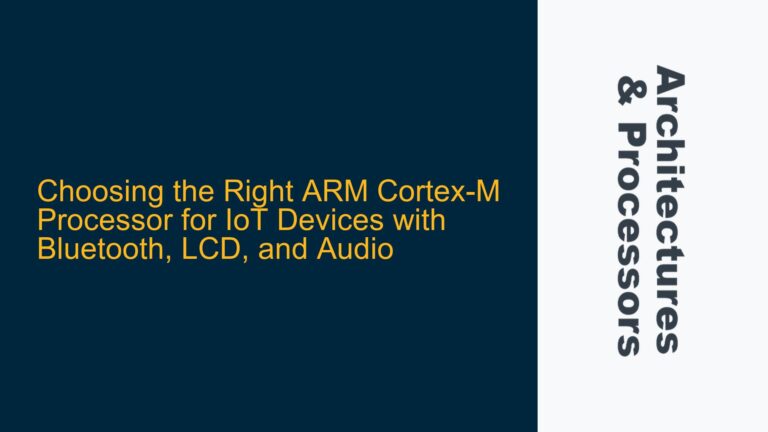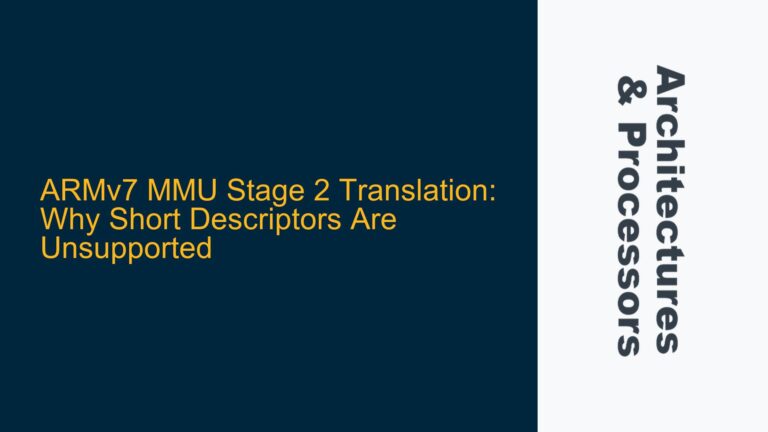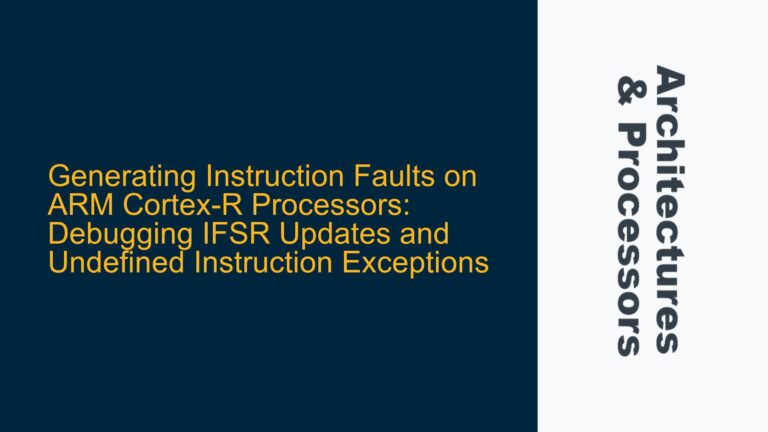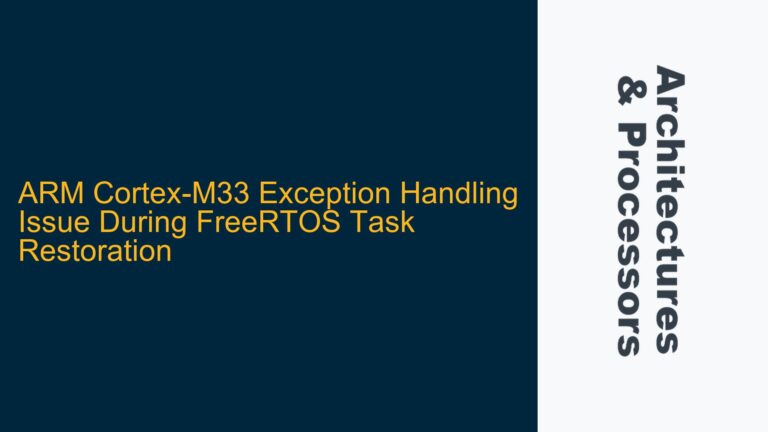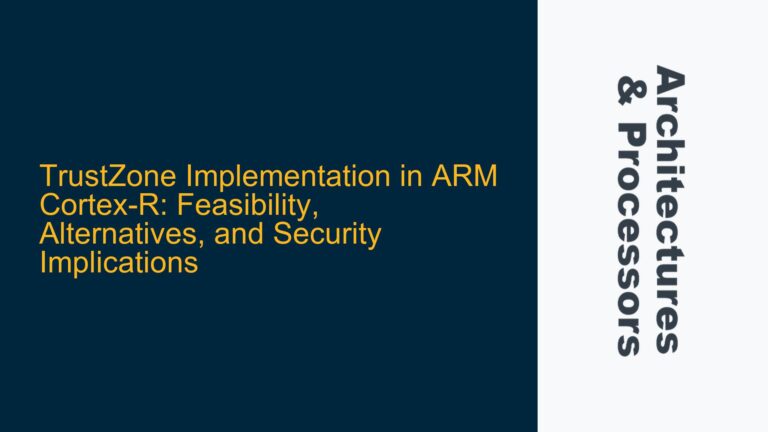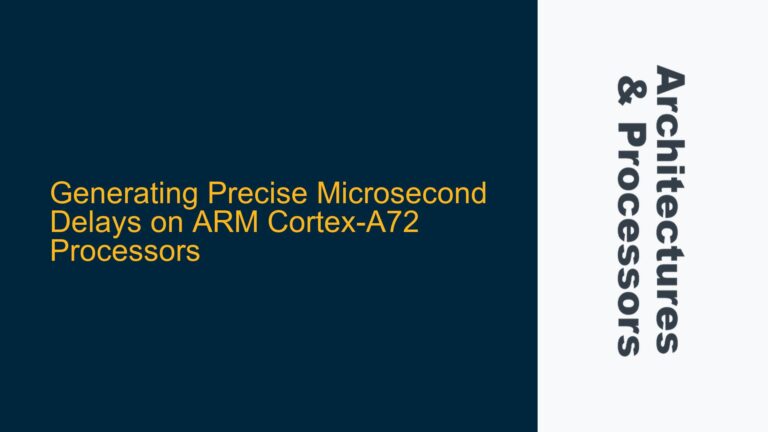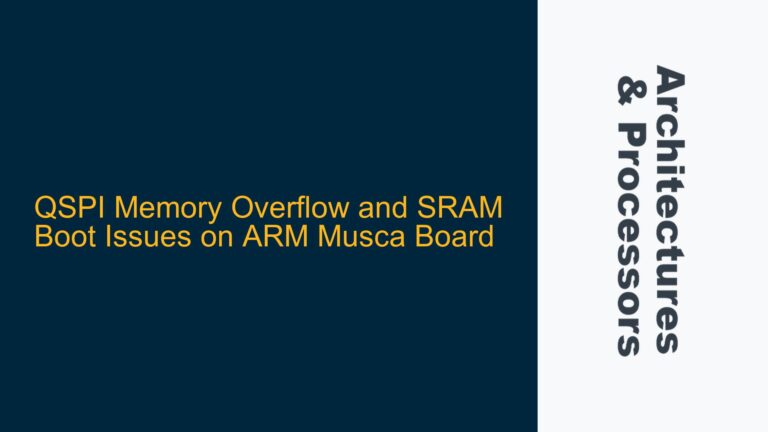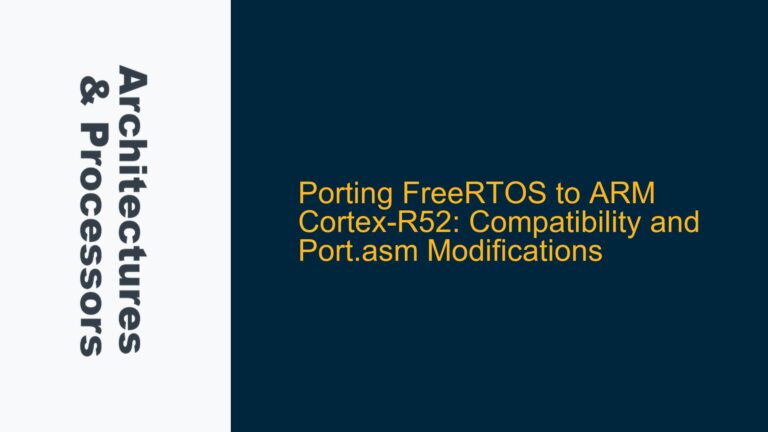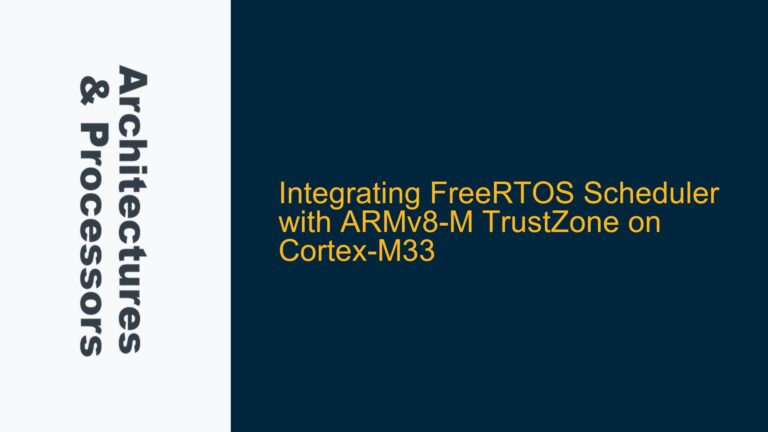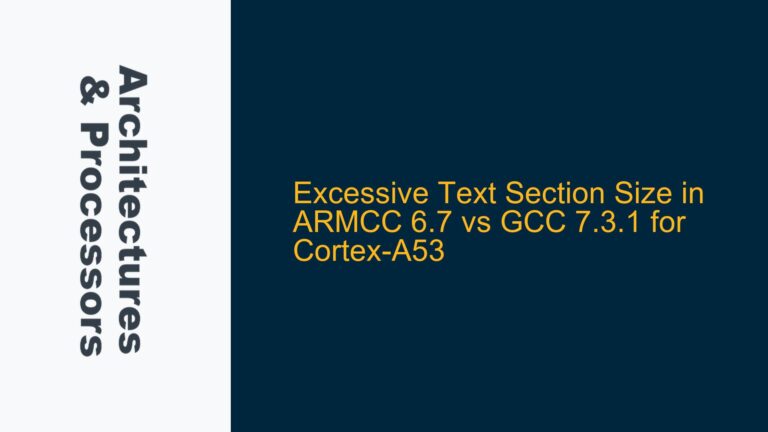Choosing the Right ARM Cortex-M Processor for IoT Devices with Bluetooth, LCD, and Audio
ARM Cortex-M7 vs. Cortex-M0/M3: Balancing Performance and Power Efficiency for IoT Applications When designing an IoT device that integrates functionalities such as capturing and transmitting images via Bluetooth, powering an LCD touchscreen, and playing audio files, selecting the appropriate ARM Cortex-M processor is critical. The Cortex-M series offers a range of processors tailored to different…
